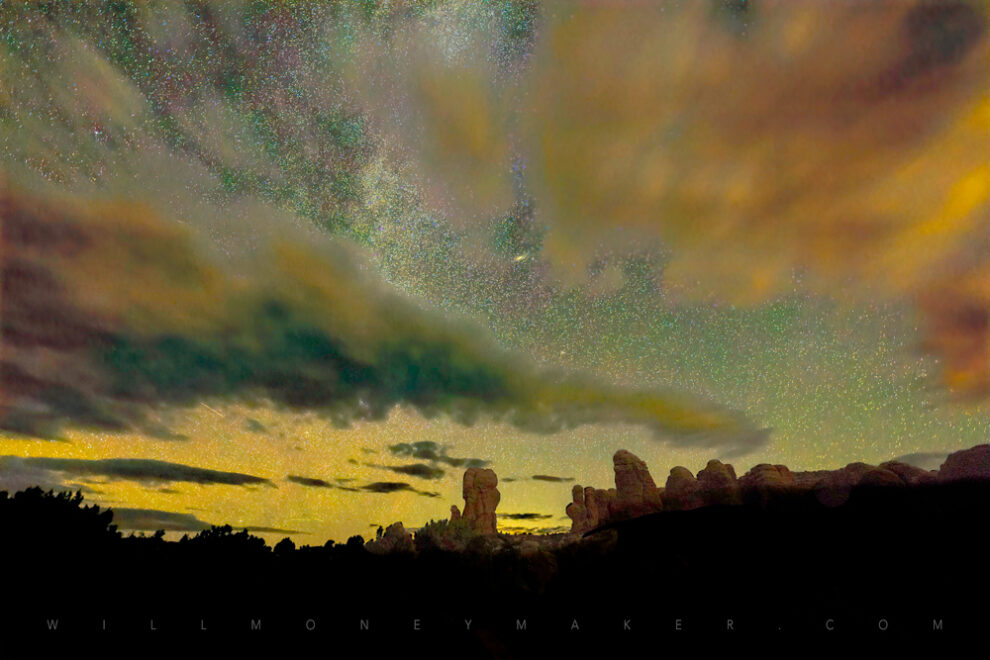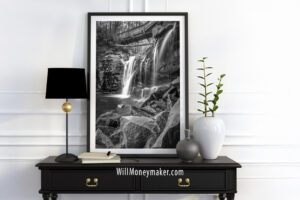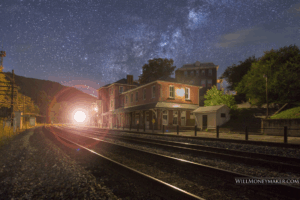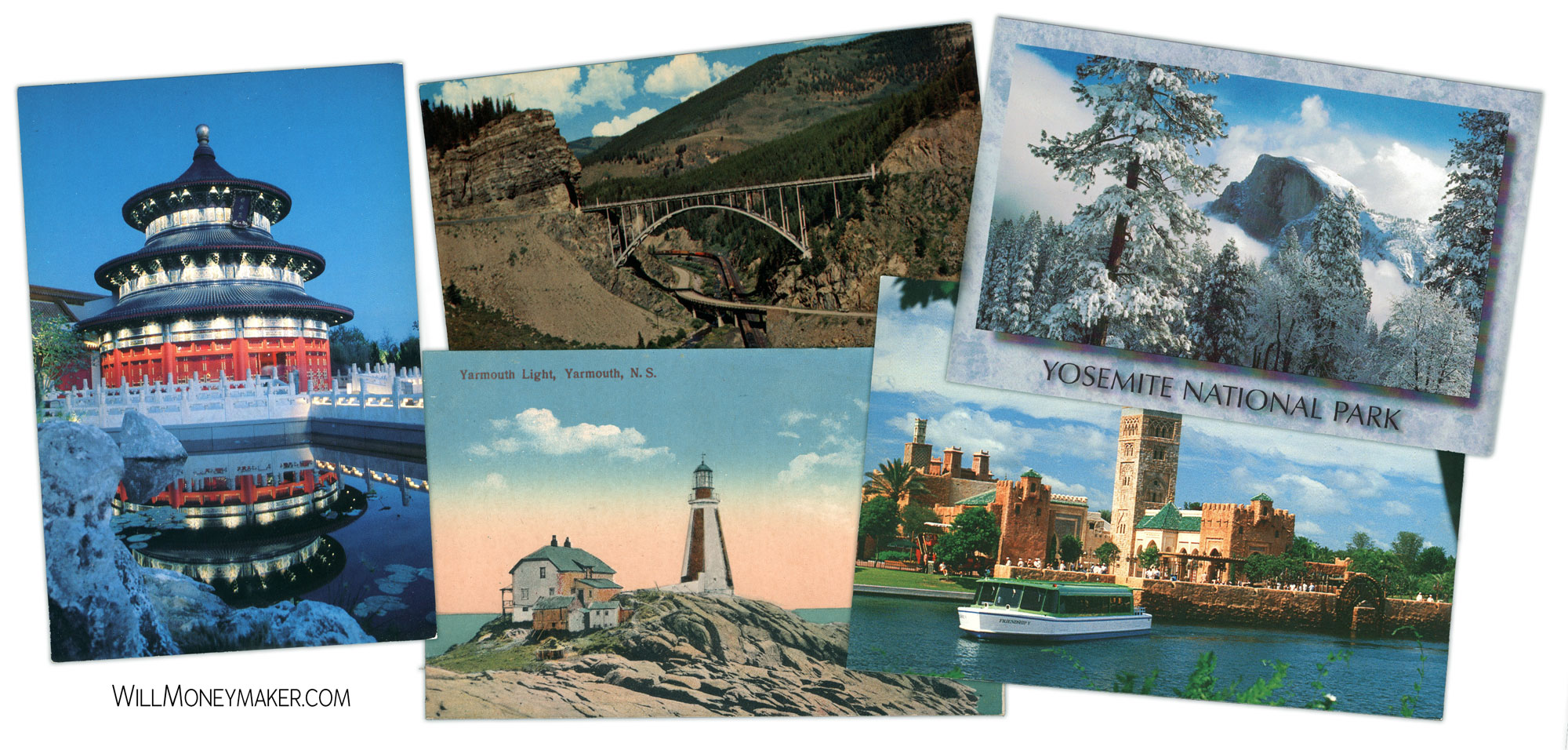With photography, absolutely anything you can imagine is possible. Even if the image isn’t something you can capture directly in one shot with your camera and lens, there are always post-processing tools available that can make whatever you imagine perfectly real — at least within the frame. Winged horses, or images in which the same person is repeated one hundred times over. Literally whatever you can imagine is possible with photography.
And the problem with this is that we become jaded so very easily. With all the things we can do, it’s very hard to get that jaw-dropping photograph that truly makes people stop and say “wow!” No matter what we create, people will assume that it was likely made in large part with post-processing tools, and thus, they’re likely to assume it wasn’t terribly difficult — even if it was.
It’s kind of a shame, in a way. Photography is a medium that, almost by default, seems less impressive than other kinds of art simply because of all the digital manipulation we can do. People often find themselves more impressed by performers, like dancers, getting every step right, or musicians not missing a note. Painters with their perfect brush strokes.
Despite all of this, so many photographers strive to get those impossible shots, and sometimes, we go to incredible lengths to get these shots. But at the end of the day, we should ask ourselves: Are viewers really that much more affected by photographs that defy the boundaries of probability? Or will they shrug and assume it was digitally manipulated in an evening’s time? Unfortunately, more often than not, the latter is true — they’ll assume the image was created quickly, via something like Photoshop.
That’s where insight becomes the more important photographic factor. If we can’t impress a thoroughly jaded audience who has seen it all, then what are we do? The answer is to engross them. In other words, we need to produce photographs that draw viewers in, hold their attention, and make them think. The processes used, the subject material and so on — none of that needs to be awe-inspiring in order to be thoughtful.
And there are lots of ways to create those thoughtful images. Let’s explore some ideas, and hopefully, something will inspire you!
Sensitivity to Your Surroundings
As photographers, we are observers above all else. That’s one of the fundamentals to creating interesting images — observing the world around us with a keen eye, noticing the details that others don’t, and documenting them.
So what does it take to become a careful observer? Most of all, it requires patience, I think. The will to stay in place and simply look. Take in all the sights, scents and sounds wherever you happen to be, and look for ways to capture that full, rich experience. Photography is purely a visual medium, but if you can depict a scene vividly enough, you can draw viewers into it and make them experience something of what it was like to be there in the moment.
Observation like this means paying careful attention to all the little details, too. If you’re in a forest, for example, the most obvious things before you will be the trees. But looking past them, what else can you find? Look at leaves, the texture of the tree bark. Search for game trails weaving through the undergrowth, and look beneath the undergrowth itself. You won’t know what little details you may find until you’ve fully explored your surroundings with an eye sensitive to details that capture attention.
Look for Clever New Ways to Do Things
A big part of creating thoughtful images is wrapped up in your ability to create clever images. I’ve said it before, but with millions of new photographs being taken by millions of people each and every day, there is very little in this world that hasn’t been photographed. Part of what sets one image apart from another of the same subject material is the photographer’s wit.
Always be thinking about how you can do it differently. If you’re creating a landscape in a well-photographed area where people have taken many similar landscapes before, go into the project with the idea that you can put some unique twist on the subject. Maybe you can photograph it from an entirely new angle. Or perhaps a unique rarely used composition is in order. Different days with different weather, different lighting or even different seasons. Can you zoom in to capture smaller parts of the landscape, or should you broaden it to capture more than most would?
There are lots of factors to consider, and combined with a trained, sensitive eye, you can surely come up with new and unusual takes on things that have been documented before!
Let Your Voice Shine
At the end of the day, we all have something to say, and that is why we take photographs. Sometimes, that message is simple: Isn’t this scene beautiful? Other times, it might be something more complex, a deeper message designed around a cause or an emotion.
These are all things that you are trying to get across to your audience, which means that in order to communicate these messages, you need to find a way to speak effectively through each image. If beauty is the point, then go to every length to create the most breathtaking image possible. Consider the composition, light, colors, shadows, each element within the frame — every bit, and make sure each is fine-tuned to create something as beautiful as you can make it. The same holds true for moods or messages that you want to get across. Study the subject material and find the techniques best suited to creating those thoughts.
What’s interesting about all of this is that as photographers, we know that those awe-inspiring images are difficult to create. But what’s even harder is creating an insightful image. Awe-inspiring can be as simple as layering multiple exposures in Photoshop, but images with insight take lots of careful consideration to create, and that takes a lot of time and effort. In the end, though, if you can capture the attention of your viewers, that effort will be worthwhile!
![]()





